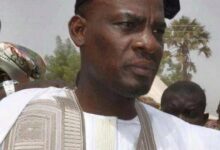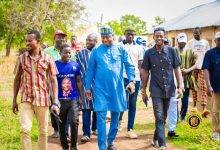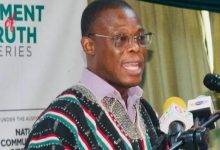Ghana on July 31, 2012 ratified the United Nations Convention on the Rights of Persons with Disabilities (CRPD) with Article 24, focusing on education, which prioritises individualised support measures for persons with special needs.
Prior to ratifying the convention, traditionally, children with mild to moderate disabilities in Ghana were trained in trades just like their peers without disabilities.
But gradually, Missionaries were said to have established the first special schools for children with disabilities in Ghana focusing first on children with blindness, and then on deaf students.
According to historians the special schools, at the time, mainly offered literacy courses, and training in how to weave baskets using local materials.
The government later on took the responsibility of catering for the educational needs of children with disabilities in 1957, but full responsibility did not begin until the passage of the Educational Act of 1961. The Ministry of Education (MoE) only took over the affairs of special education from the Ministry of Labour and Social Welfare in the late 1960s and in 1970, the Special Education Unit assumed full responsibility for special schools.
Although there is a deliberate government policy dating back decades, there appears to be neglect as alleged by the Ghana Blind Union (GBU) who are calling on the Ministry of Education and the Ghana Education Service to pay critical attention to deplorable conditions of special needs schools in the country.
According to the Union, the poor quality of food, lack of infrastructure and unhygienic conditions in dormitories and classrooms were hampering their academic work.
The Bono Regional president of GBU, Mr Isaac Yeboah Afari, made the appeal at a press briefing held on Friday in Sunyani to commemorate this year’s International White Safety Cane Day.
The day is to celebrate the achievements of people who are blind or visually impaired and the importance of the “white cane” as symbol of blindness and tool of independence.
During the remarks Mr Afari painted a gloomy picture about the Bechem Demonstration School for the Deaf, and said for instance, that, the students lived under unacceptable conditions while students of the St Joseph College of Education Basic School, studied under trees.
This situation, he claimed were not different from other inclusive basic schools in the country.
He said although the government, over the years, had increased the enrolment of blind and partially sighted persons in school through the adoption of inclusive education system, a lot more needed to be done to improve quality of learning environment.
“Increasing access to education for visually impaired people and yet relegating quality to the background is meaningless,” he stated.
There is no doubt that the special needs schools in the country are facing challenges that need urgent attention from the relevant authorities.
From the historical perspective, the Ghanaian Times recognises that governments have over the years provided the needs of the special needs schools but their condition requires extra attention.
We are, therefore, calling on the Ministry of Education and the Ghana Education service to heed the call by the GBU to go to the aid of special needs schools so that standards in these schools can improve to make learning and teaching conducive for them.



